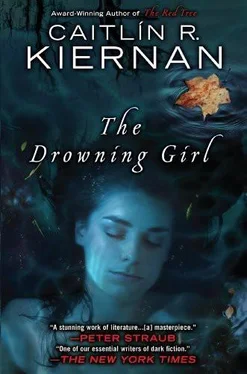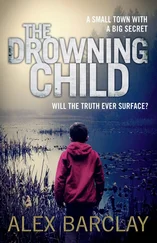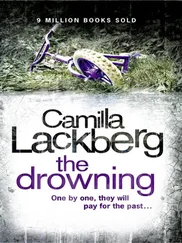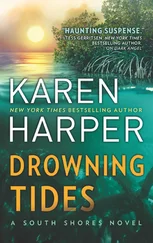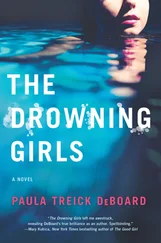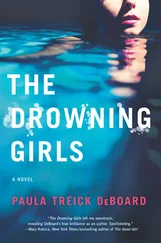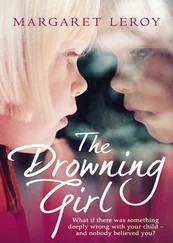Caitlín Kiernan - The Drowning Girl
Здесь есть возможность читать онлайн «Caitlín Kiernan - The Drowning Girl» весь текст электронной книги совершенно бесплатно (целиком полную версию без сокращений). В некоторых случаях можно слушать аудио, скачать через торрент в формате fb2 и присутствует краткое содержание. Год выпуска: 2012, ISBN: 2012, Издательство: Roc / New American Library, Жанр: Фэнтези, на английском языке. Описание произведения, (предисловие) а так же отзывы посетителей доступны на портале библиотеки ЛибКат.
- Название:The Drowning Girl
- Автор:
- Издательство:Roc / New American Library
- Жанр:
- Год:2012
- ISBN:978-0-451-46416-3
- Рейтинг книги:5 / 5. Голосов: 1
-
Избранное:Добавить в избранное
- Отзывы:
-
Ваша оценка:
- 100
- 1
- 2
- 3
- 4
- 5
The Drowning Girl: краткое содержание, описание и аннотация
Предлагаем к чтению аннотацию, описание, краткое содержание или предисловие (зависит от того, что написал сам автор книги «The Drowning Girl»). Если вы не нашли необходимую информацию о книге — напишите в комментариях, мы постараемся отыскать её.
The Drowning Girl — читать онлайн бесплатно полную книгу (весь текст) целиком
Ниже представлен текст книги, разбитый по страницам. Система сохранения места последней прочитанной страницы, позволяет с удобством читать онлайн бесплатно книгу «The Drowning Girl», без необходимости каждый раз заново искать на чём Вы остановились. Поставьте закладку, и сможете в любой момент перейти на страницу, на которой закончили чтение.
Интервал:
Закладка:
The scales seem to tilt in favor of July, and Highway 122, and mermaids. Away from Albert Perrault and towards Phillip George Saltonstall. But…I have this sickening feeling that next time I sit down to write more of this, the scales will somehow manage to tilt the other way, in favor of November, and Connecticut, and wolves. That’s not just a turn of phrase, either—this sickening feeling. Knowing that may happen makes me queasy. Not quite full-on nauseous, but definitely queasy.
I’m going to go put the kettle on for a pot of tea, and maybe eat some toast or a crumpet with blueberry jam. And I need to get dressed, because I have to be at work in an hour. There isn’t time for a shower, though I need one, because I’ve been sitting here writing this ever since I woke up from a dream about Abalyn and Eva. Hopefully, if I use deodorant and wear clean underwear, no one will notice I need a shower.
My kitchen is the main reason that I rented the apartment at the east end of Willow Street. It gets the morning sunlight. The walls are painted a cheery sort of yellow, and in the morning the room is bright and, in autumn and winter and late spring, seems warmer than it actually ever is, which is nice. The kitchen puts me at ease after sleep. Sleep usually leaves me disoriented, my nerves jangling; I have dreams that are as bright, as vivid, as the eight o’clock sunshine off those kitchen walls, but there’s rarely anything cheery about the dreams. I didn’t used to have such bad nightmares—the dreams started after Eva. Grandmother Caroline always said that the kitchen is the most important room in any house (or apartment), and her advices have hardly ever steered me wrong.
The morning after the first night that Abalyn came to stay with me, we sat together at the kitchen table. I was having tea, a banana, and a crumpet—my usual—and she was eating Nilla Wafers with peanut butter. My tea was pale with milk, and hers was not. She was wearing a black T-shirt and black boxer shorts. I had on my gingham nightgown, the one with blue and white checks. It had stopped raining and the sun was out, so the yellow kitchen was very, very yellow. These details are so clear to me, which strikes me odd, since so many far more important details are hazy or have been altogether lost.
My memory is almost like Caroline and Rosemary never died. It plays surrogate and tries to keep me safe. It selects and omits, saves and sorts and wipes clean. Often, I think it smothers. Not intentionally, of course.
“Do you always have Saturdays off?” Abalyn asked, using a spoon to spread a thick glob of peanut butter onto a cookie.
“Mostly,” I replied, sipping my tea. “But I wish I could get more hours than I do. I wouldn’t much mind working weekends. Do you have a job?”
“I told you. I write reviews of video games.”
“I mean besides that.”
She chewed and stared at me a moment or two. “No, not besides that.”
“It pays enough you don’t need another job?”
“Not exactly,” she muttered around Nilla Wafer and peanut butter. “That’s one of the things busted up me and Jodie. She kept nagging at me to get a real job.” When Abalyn said “real job,” she used her fingers to make sarcastic quotation marks. “You get paid enough at the art supply place for the rent on this apartment?”
“Mostly,” I said again. “And I have some money put away, some money that my grandmother left me. So, I make ends meet.”
“So you’re sort of a trustafarian,” she said, and laughed.
“No,” I said, and I think I said it a little angrily. “I just have a little money Grandmother Caroline left me and my mother. It’s a trust fund, but I work. If I didn’t, it wouldn’t have lasted half this long.”
“Lucky you,” Abalyn sighed.
“I’ve never thought of it that way.”
“Maybe you should start.”
Neither of us said anything for a while then. Abalyn wasn’t the first person who’d made a snide remark about my inheritance (my aunt Elaine is the trustee). It happens sometimes, and sometimes I explain there’s not all that much of it left. That it’ll run out in a few more years, and who knows how I’ll manage then, what with rent and my meds and all? But I didn’t go into that with Abalyn, not that morning. We talked about it at some point later on.
“Sorry,” she said. “I’m just a little prickly on the subject of money right now.”
“No. It’s okay.”
She told me about Jodie, how they’d fought a lot, usually about the finances. Jodie had a nine-to-five office-job-type job, and Abalyn said Jodie resented the fact that her girlfriend spent all day sitting at home playing video games. Abalyn said they’d get into arguments because Jodie would see something in an Ikea catalog, for instance, and remark how they could have nicer things if Abalyn was making more money. She also talked about how they met, out on the Cape, at a bar in Provincetown.
“I know. Terribly cliché. She was a little drunk, but I bought her another beer and we got to talking. She didn’t even realize I was a tranny until we were leaving to go back to my hotel room.”
“I haven’t said anything about Abalyn being a transsexual,” Imp typed. “She wouldn’t have wanted me to make a big deal out of it, and it never mattered to me. That’s why I haven’t really brought it up before now.
“It’s just part of who she was,” Imp typed.
“Did she get pissed? When she found out, I mean?” And I was thinking about that scene in The Crying Game , when Stephen Rea first sees Dil naked, then goes to the toilet and pukes. I didn’t tell Abalyn that’s what was running through my mind.
“As a matter of fact, she did. So, we didn’t go back to my room, after all. But I’d given her my card—”
“You have cards?”
Abalyn smiled. “Started out sort of like a joke. But they come in handy. Anyway, she had my card, which has my email and Facebook and everything, and she got in touch with me about a week later. Wanted to meet up again.”
“And you did? Even after the way she’d acted?”
“You will find I can be a very forgiving soul, especially when pretty women are involved.”
We talked a little more about her being a transsexual then. Not a lot, just a little. I didn’t tell her how I’d known right away, when she’d caught me rummaging through her stuff the day before. I thought it would have been rude to tell her that. She told me about going to a clinic in Bangkok for her surgery, and the guy she’d been living with at the time. She said, “He paid for almost all of it, but then we broke up right after. Turned out he didn’t like me afterwards. I’ve met a lot of guys like that. They have hard-ons for pre-ops, but they’re really just gay men with a fetish, so post-ops are a complete turnoff.”
“Did you love him?” I asked, though, in retrospect, I think it was an indelicate question.
Abalyn ate another cookie with peanut butter, and frowned slightly, as if it was hard thinking of the answer, or hard putting the answer into words.
“I believed that I did. At the time. But I got over it. I was grateful for what he’d done for me, and it was an amicable split. We still talk, every now and then. He calls me. I call him. Email. He’s a good guy, but he really ought to stick to straight-up cock.”
“This is more relevant than it may at first glance appear,” typed Imp. The keys jammed, and she had to stop to get them unstuck, staining the fingers of both hands with ink. “Duality. The mutability of the flesh. Transition. Having to hide one’s true self away. Masks. Secrecy. Mermaids, werewolves, gender. The reactions we may have to the truth of things, to someone’s most honest face, to facts that run counter to our expectations and preconceptions. Confessions. Metaphors. Transformation. So, it’s very relevant. Not just a random breakfast conversation. Don’t leave out anything relevant, no matter how mundane it might feel.”
Читать дальшеИнтервал:
Закладка:
Похожие книги на «The Drowning Girl»
Представляем Вашему вниманию похожие книги на «The Drowning Girl» списком для выбора. Мы отобрали схожую по названию и смыслу литературу в надежде предоставить читателям больше вариантов отыскать новые, интересные, ещё непрочитанные произведения.
Обсуждение, отзывы о книге «The Drowning Girl» и просто собственные мнения читателей. Оставьте ваши комментарии, напишите, что Вы думаете о произведении, его смысле или главных героях. Укажите что конкретно понравилось, а что нет, и почему Вы так считаете.
